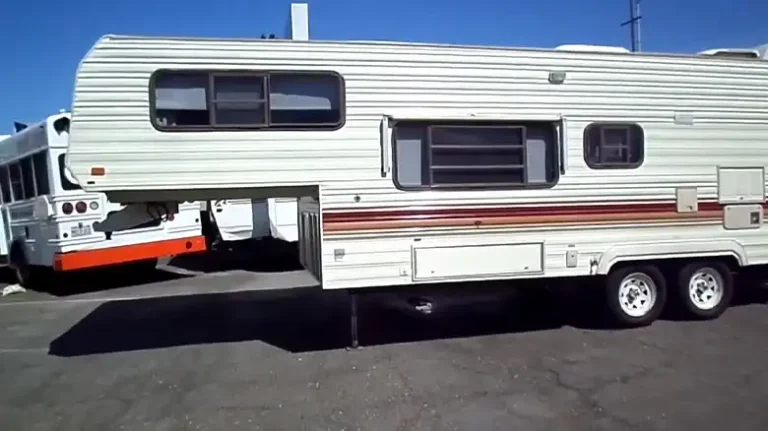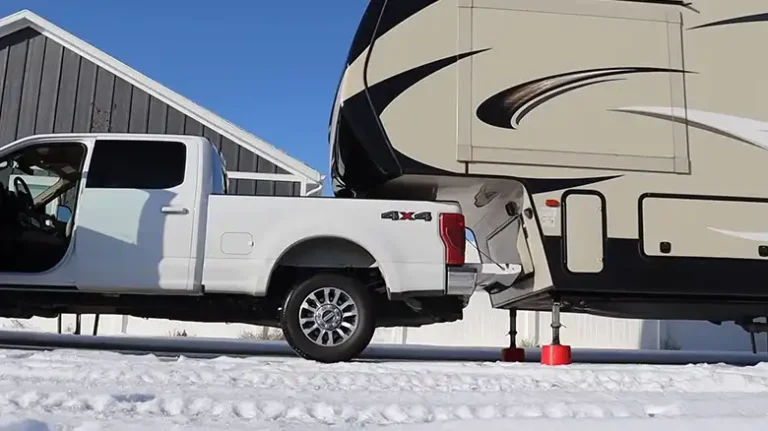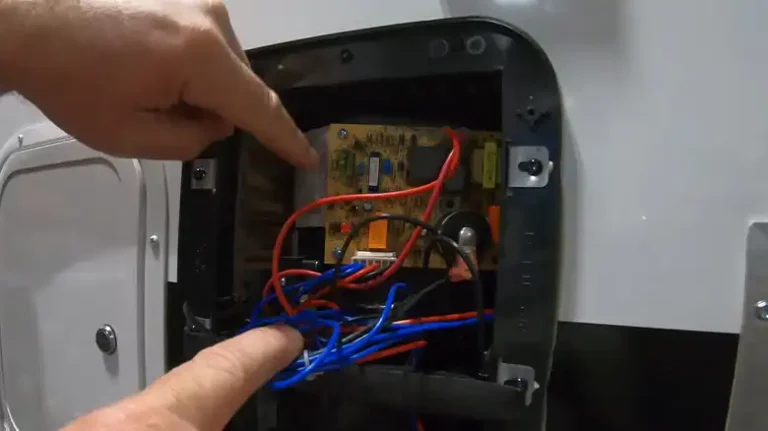How to Get Rid of Roaches in Your RV Naturally (I Have Done Several Things)
Roaches, those pesky and unsightly insects, can be a nightmare for RV owners. These resilient pests can quickly infest your home on wheels, causing significant distress. Fortunately, you can combat this problem naturally.
In this article, we will explore why roaches are bad for your RV, how they infiltrate it, how to identify a roach infestation, and the steps to get rid of them naturally. Additionally, we’ll discuss alternative methods and provide pro tips to prevent roach infestations.

How to Get Rid of Roaches in Your RV Naturally
To eliminate roaches naturally, follow these steps:
Maintain Impeccable Cleanliness
Keeping your RV spotless is the cornerstone of cockroach control. Roaches are attracted to food remnants and dirty surroundings, so store all food in airtight containers to deny them easy access, and thoroughly clean food preparation areas, ensuring no crumbs or spills are left behind.
Seal Entry Points
Preventing cockroaches from infiltrating your RV is crucial. Conduct a thorough inspection and seal any cracks and gaps with caulk or weather stripping to block potential entryways.
Natural Repellents
Utilize nature’s defenses to keep roaches at bay. Sprinkle diatomaceous earth (a natural and non-toxic powder) around roach hiding spots to dehydrate and ultimately kill them. Soak cotton balls in cedar oil and place them strategically around your RV; the scent acts as a deterrent. Scatter bay leaves in cabinets and drawers, as roaches despise their aroma.
Homemade Traps
Lure roaches with homemade bait traps that are both effective and chemical-free. Create a mixture of baking soda and sugar to attract roaches. Once ingested, the baking soda will harm them. Alternatively, use a blend of boric acid and sugar as a bait. Roaches consume it and meet their demise.
Essential Oils
Harness the power of essential oils to repel roaches naturally. Prepare a mixture of essential oils such as peppermint, eucalyptus, or lavender with water and spray it in potential hiding places and entry points.
Limit Water Sources
Roaches need water to survive, so promptly fix any water leaks in your RV. Keep sinks and counters dry to deny roaches access to essential hydration.
Declutter Your RV
Roaches thrive in cluttered environments, which offer ample hiding spots. To combat this, remove unnecessary items and clutter from your RV, minimizing hiding places for roaches.
Regular Maintenance
Consistency is key. Implement these natural methods on an ongoing basis to ensure a roach-free RV. Regularly inspect for new entry points or signs of infestation, and take swift action as needed.
How to Identify a Roach Infestation in Your RV
Detecting a roach infestation early is crucial for effective control. Look for these signs:
Droppings: Roach droppings resemble small, dark specks and are often found in kitchen cabinets, drawers, and other hiding spots.
Egg Casings: Roaches lay egg casings that are brown and elongated. These casings can be found in hidden corners and crevices.
Unusual Odor: An unpleasant, musty odor that doesn’t go away with cleaning can be indicative of a roach infestation.
Sightings: Roaches are nocturnal and usually hide during the day. If you spot them scurrying around your RV at night, it’s a strong indicator of an infestation.
Gnaw Marks: Check for gnaw marks on food packaging and other materials. Roaches leave these marks as they feed.
Why Roaches Are Bad for Your RV
Roaches are not just a nuisance; they pose several threats to your RV:
Health Risks: Roaches carry diseases and bacteria that can be harmful to humans. They can contaminate your food, utensils, and living areas, leading to health issues.
Property Damage: These pests are notorious for gnawing on various materials, including electrical wiring and insulation. This can result in costly repairs.
Unpleasant Odor: Roaches emit a distinct, unpleasant odor that can permeate your RV, making it an unpleasant place to live and travel in.
Allergens: Roach droppings, shed skin, and saliva can trigger allergies in sensitive individuals.
Psychological Stress: The mere presence of roaches can cause psychological distress, impacting your enjoyment of RV living.
How Do Roaches Get Inside Your RV
Understanding how roaches infiltrate your RV is the first step in preventing an infestation:
Through Gaps and Cracks: Roaches can squeeze through tiny gaps and cracks in your RV’s exterior, especially around doors, windows, and vents. Seal these entry points to keep them out.
Hitchhiking: Roaches may hitch a ride on your belongings or even on you. Always inspect your gear and clothes before bringing them into your RV.
Used Items: Second-hand furniture, appliances, or camping gear can harbor roaches or their eggs. Be cautious when acquiring used items for your RV.
Campsites and Campgrounds: Roaches can travel from neighboring RVs or campsites. Maintain a clean campsite and be vigilant about your surroundings.
Drains and Pipes: Roaches can enter through drains and pipes. Install drain covers to prevent their entry.
Other Ways to Get Rid of Roaches
If natural methods don’t work or if the infestation is severe, consider these alternatives:
Professional Pest Control: Consult a pest control professional who can provide eco-friendly methods to eliminate roaches effectively.
Insecticides: Choose insecticides labeled for use in RVs and follow the instructions carefully. Make sure the product is safe for indoor use.
Ultrasonic Repellents: Some RV owners report success with ultrasonic pest repellents that emit high-frequency sounds to deter roaches.
Rodent Glue Traps: These traps can also catch roaches, but they may not eliminate the entire infestation.
Pro Tips to Prevent Roach Infestation
Prevention is the best strategy against roaches:
Regular Inspection: Routinely inspect your RV for cracks, gaps, and signs of roach activity.
Secure Food: Store all food in airtight containers to deprive roaches of a food source.
Natural Deterrents: Use natural repellents like cedarwood and essential oils to keep roaches away.
Maintain Clean Campsites: Choose well-maintained campgrounds and maintain a clean campsite to reduce the risk of roaches from neighboring areas.
Second-Hand Items: Exercise caution when acquiring used items for your RV, and thoroughly inspect them for signs of roaches.
FAQs
Q1: Are roaches more common in certain regions?
A1: Roaches can be found in various regions, but they thrive in warm, humid environments. Some areas may have more prevalent roach populations.
Q2: Can roaches damage an RV’s electrical system?
A2: Yes, roaches can gnaw on electrical wiring, potentially causing shorts and electrical issues.
Q3: Do natural methods take longer to work than chemical treatments?
A3: Natural methods may take a bit longer to show results, but they are generally safer and more environmentally friendly.
Q4: Can roaches be harmful to pets in the RV?
A4: Roaches can transmit diseases to both humans and pets, making them a potential health risk.
Q5: How often should I inspect my RV for signs of roaches?
A5: Regularly inspect your RV, especially before and after trips, to catch any signs of roaches early.
In conclusion
A roach infestation in your RV can be a major headache, but it can be tackled naturally with persistence and vigilance. By keeping your RV clean, sealing entry points, using natural repellents, and practicing prevention, you can enjoy your RV adventures without the unwanted company of these pesky insects. If natural methods fail, consider professional help or alternative approaches to address the issue effectively. Remember that regular maintenance and vigilance are key to keeping your RV roach-free and your travels worry-free.







